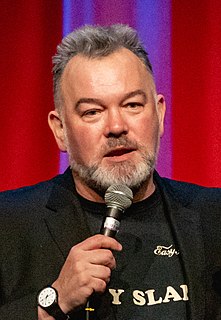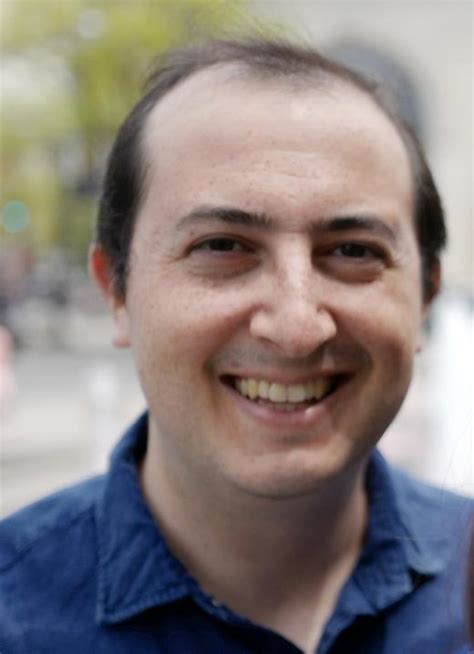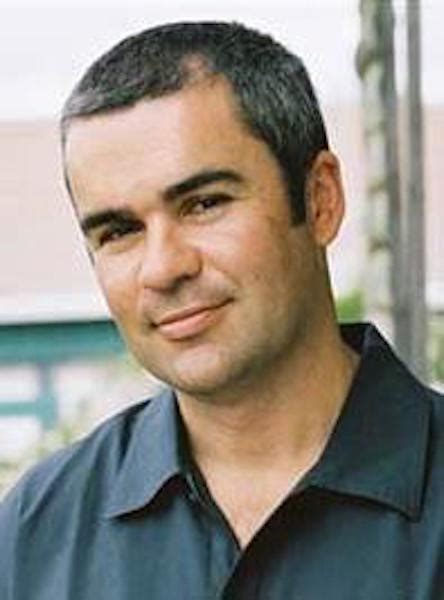A Quote by Bill Gates
I agree with people like Richard Dawkins that mankind felt the need for creation myths. Before we really began to understand disease and the weather and things like that, we sought false explanations for them. Now science has filled in some of the realm - not all - that religion used to fill.
Related Quotes
Myths are about the human struggle to deal with the great passages of time and life--birth, death, marriage, the transitions from childhood to adulthood to old age. They meet a need in the psychological or spiritual nature of humans that has absolutely nothing to do with science. To try to turn a myth into a science, or a science into a myth, is an insult to myths, an insult to religion, and an insult to science. In attempting to do this, creationists have missed the significance, meaning, and sublime nature of myths. They took a beautiful story of creation and re-creation and ruined it.
In the past few months I've become religious, I've started to believe in god, creationism and intelligent design, and the reason that I now believe in god and creationism and intelligent design is because of Professor Richard Dawkins. Because when I look at something as complex and intricate and beautiful as Professor Richard Dawkins, I don't think that just could've evolved by chance! Professor Richard Dawkins was put there by god to test us, like fossils. And facts.
We could tell them [alien civilization] things that we have discovered in the realm of mathematical physics, but there is stuff that I would like to know. There are some famous problems like how to bring gravitation and quantum physics together, the long-sought-after theory of quantum gravity. But it may be hard to understand the answer that comes back.
Chris Ferguson brought up a really interesting point that I agree with, and he said science is a human endeavor. The more someone tells me that they're absolutely objective, the less I believe they are. So people need to fact-check things. They need to understand that science is easily damaged by politics and personal opinion.
One thing I've experienced and I feel really grateful for now that I'm on my way out is that I felt that the justices gave that back to me. I really did. You know, of course, you can have some sharp exchanges. That's the nature of the thing, and that's fine. But really in the main I felt like the tone from them was, "Yeah. We may not agree with you, but we're going to have a discussion about this." And it did.
I didn't study science beyond high school level, but I'd been reading a lot of science books by people like Richard Dawkins, Matt Ridley and Daniel Dennett. I also spent a year working on a fellowship in a research centre - the Allan Wilson Centre - where I got a hands-on look at their work sequencing DNA.
Science is like society and trade, in resting at bottom upon a basis of faith. There are some things here, too, that we can not prove, otherwise there would be nothing we can prove. Science is busy with the hither-end of things, not the thither-end. It is a mistake to contrast religion and science in this respect, and to think of religion as taking everything for granted, and science as doing only clean work, and having all the loose ends gathered up and tucked in. We never reach the roots of things in science more than in religion.
When people say, well, they disapprove, I'd like to know what the specifics are, because sometimes - and the president [Barack Obama] has admitted this - they may not feel like he's really explaining and understanding the emotion behind some of these fears [about Iran]. And that's a perfectly legitimate question for people to ask. But if you look at the results of where we are, I think there are some things I agree with and some things I don't agree with, and I think that's absolutely fair game.
I love religion. I could make up religions all day. I sort of think that in an ideal world I'd like to be a religion designer. I'd like people come up to me and say, I need a religion. I'd go talk to them for a while, and I'd design a religion for them. That would be a great job. There's a need for people like that. Fortunately, seeing that one can't actually do it, I get paid for sort of making them up anyway.



































